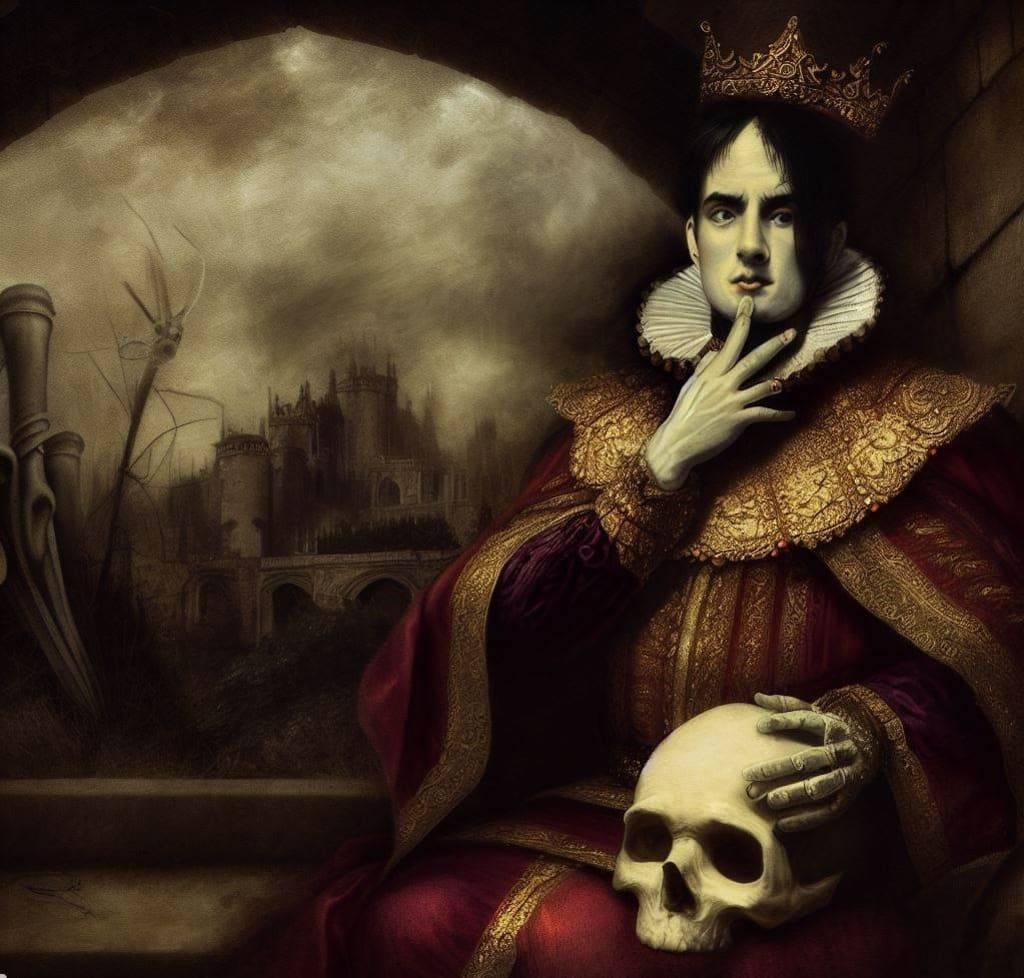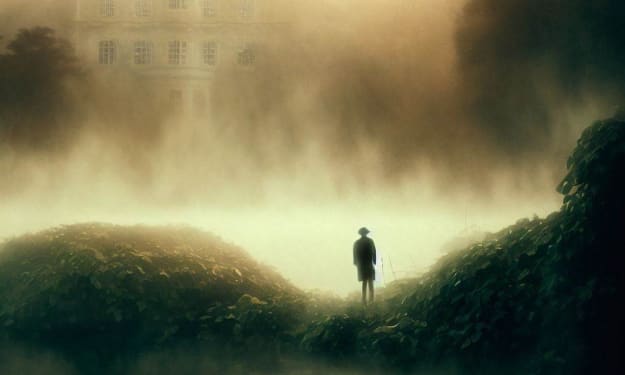
Hamlet, written by William Shakespeare, is a timeless tragedy that delves into the depths of human emotions, morality, and the complexities of revenge. Set in the Kingdom of Denmark, this play explores the psychological and moral dilemmas faced by its titular character, Prince Hamlet, as he grapples with the betrayal, deception, and his ultimate quest for vengeance.
The play begins with a sense of foreboding as the ghost of King Hamlet appears on the battlements of the castle, setting the stage for a tale of intrigue and tragedy. Shakespeare masterfully weaves a narrative that examines the human condition, exploring themes such as the corrupting nature of power, the fragility of truth, and the consequences of inaction.
At the heart of the play is the complex character of Prince Hamlet. Shakespeare's portrayal of Hamlet is a masterpiece of psychological depth and introspection. Hamlet is a deeply contemplative character, torn between his duty to avenge his father's murder and his own moral qualms. The famous soliloquy, "To be or not to be," captures his internal struggle and the existential questions that torment him. Through Hamlet, Shakespeare delves into the universal human experience of grappling with indecision, inner turmoil, and the weight of responsibility.
The secondary characters in Hamlet also contribute significantly to the play's richness and complexity. Claudius, the conniving and ambitious usurper, embodies the corrupting influence of power. His guilt-ridden reactions during the staged play serve as a testament to the accuracy of Hamlet's suspicions. Gertrude, Hamlet's mother, portrays the complexities of loyalty and the blurred lines between love, duty, and betrayal. Polonius, the overbearing and meddling advisor, adds a touch of comedic relief while highlighting the dangers of deception and manipulation.
The portrayal of Ophelia, Hamlet's love interest, is both tragic and poignant. Shakespeare presents her as a victim of circumstance, torn between her loyalty to her father and her affection for Hamlet. Ophelia's descent into madness is a stark reminder of the destructive consequences of Hamlet's pursuit of revenge, further blurring the lines between sanity and madness.
Shakespeare's mastery of language shines through in Hamlet. The play is replete with poetic soliloquies, memorable quotes, and rich imagery that have become indelibly etched in the annals of literary history. Lines such as "To thine own self be true" and "The play's the thing" continue to resonate with readers and theatergoers alike, capturing the essence of the human experience and offering profound insights into the human psyche.
While the plot of Hamlet revolves around revenge, the play delves far deeper, raising profound philosophical questions about the nature of existence, the complexity of human relationships, and the consequences of one's actions. Shakespeare invites readers and audiences to ponder the moral implications of revenge, the transitory nature of life, and the capacity for self-deception.
Hamlet is a play that continues to captivate audiences centuries after its creation. Its universal themes, complex characters, and poetic language make it a timeless masterpiece. Shakespeare's exploration of the human condition resonates with readers of all ages, reminding us of the moral dilemmas, emotional turmoil, and existential questions that are inherent to the human experience.
In conclusion, Hamlet stands as a pinnacle of literary achievement, showcasing Shakespeare's brilliance in crafting a deeply introspective tragedy. Its exploration of human psychology, moral dilemmas, and the consequences of revenge remain relevant and thought-provoking to this day. Hamlet's enduring popularity is a testament to its timeless appeal and its profound ability to engage and challenge its audience. It is a must-read for anyone seeking to immerse themselves in the complexities of human nature and the power of Shakespearean drama.
About the Creator
Drab
Book Bloggers || Book Reviewer






Comments
There are no comments for this story
Be the first to respond and start the conversation.